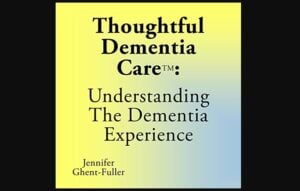Being more socially active in your 50s and 60s predicts a lower risk of developing dementia later on, a UCL-led study has found.
The longitudinal study, published in PLOS Medicine, reports robust evidence that social contact earlier in life could play an important role in staving off dementia.
Why Does Socializing Help the Brain?
“People who are socially engaged are exercising cognitive skills such as memory and language, which may help them to develop cognitive reserve — while it may not stop their brains from changing, cognitive reserve could help people cope better with the effects of age and delay any symptoms of dementia,” said senior author Professor Gill Livingston (UCL Psychiatry).
“Spending more time with friends could also be good for mental wellbeing, and may correlate with being physically active, both of which can also reduce the risk of developing dementia,” added Professor Livingston, who previously led a major international study outlining the lifecourse factors that affect dementia risk.
1 Vs. Many Brain Areas
When you socialize, you use the parts of your brain that engage:
- Memory
- Language
- Vision processing
- Listening
- Thinking, Cognition
- Emotion & Feelings
- Usually you are moving hands, feet, or body
- Facial Expressions
When an fMRI (kind of a 3D Video Color X-Ray) of the brain is performed on a person memorizing words, the memory center of the brain may light up in bright red on one spot of the fMRI. When a person is socializing, many many areas light up on the brain fMRI. You actually see changing degrees of brightness, color and intensity, sort of like a fireworks display of the mind. Think of socializing as giving most parts of the brain a more complete, broad-spectrum workout.
1 in 3 Dementia Cases are Preventable
“Dementia is a major global health challenge, with one million people expected to have dementia in the UK by 2021, but we also know that one in three cases are potentially preventable,” said the study’s lead author, Dr Andrew Sommerlad (UCL Psychiatry).
“Here we’ve found that social contact, in middle age and late life, appears to lower the risk of dementia. This finding could feed into strategies to reduce everyone’s risk of developing dementia, adding yet another reason to promote connected communities and find ways to reduce isolation and loneliness.”
10,000 Participants
The research team used data from the Whitehall II study, tracking 10,228 participants who had been asked on six occasions between 1985 and 2013 about their frequency of social contact with friends and relatives. The same participants also completed cognitive testing from 1997 onwards, and researchers referred to the study subjects’ electronic health records up until 2017 to see if they were ever diagnosed with dementia.
For the analysis, the research team focused on the relationships between social contact at age 50, 60 and 70, and subsequent incidence of dementia, and whether social contact was linked to cognitive decline, after accounting for other factors such as education, employment, marital status and socioeconomic status.
Social Contact Impacts Dementia
The researchers found similarly strong associations between social contact at ages 50 and 70 and subsequent dementia; while those associations did not reach statistical significance, the researchers say that social contact at any age may well have a similar impact on reducing dementia risk.
Social contact in mid to late life was similarly correlated with general cognitive measures.
Long Follow-Up Strengthens Evidence
Previous studies have found a link between social contact and dementia risk, but they did not have such long follow-up times, so they could not rule out the possibility that the beginnings of cognitive decline may have been causing people to see fewer people, rather than the other way around. The long follow-up in the present study strengthens the evidence that social engagement could protect people from dementia in the long run.
The researchers say there are a few explanations for how social contact could reduce dementia risk.
Change Our Lives & Connect
Dr Kalpa Kharicha, Head of Innovation, Policy and Research at the Campaign to End Loneliness, said: “We welcome these findings that show the benefits of frequent social contact in late/middle age on dementia risk. As we found in our Be More Us Campaign, almost half of UK adults say that their busy lives stop them from connecting with other people. It’s important we make changes to our daily lives to ensure we take the time to connect with others. We need more awareness of the benefits that social wellbeing and connectedness can have to tackle social isolation, loneliness and reduce dementia risk.”
Dementia Books & Videos on Amazon:
FREE Newsletter:
Fiona Carragher, Chief Policy and Research Officer at Alzheimer’s Society, said: “There are many factors to consider before we can confirm for definite whether social isolation is a risk factor or an early sign of the condition — but this study is a step in the right direction. We are proud of supporting work which helps us understand the condition better — it is only through research that we can understand true causes of dementia and how best to prevent it.
Prevention, Health & Dementia Risk
“As the number of people in the UK with dementia is set to rise to one million by 2021, we must do what we can to reduce our risk — so along with reducing your alcohol intake and stopping smoking, we encourage people across the country to get out into the sunshine, and do something active with family and friends.
“The Government’s recent emphasis on health prevention is a welcome opportunity to reduce the risk of dementia across society. We now need to see Ministers prioritise better support initiatives to help people reduce the risk of dementia, and look forward to seeing this when the results of the Green Paper on Prevention are published later in the year.”
SUPPORT:
- The researchers were supported by Wellcome and the National Institute for Health Research UCLH Biomedical Research Centre, while the Whitehall II study is supported by the US National Institutes of Health, UK Medical Research Council and the British Heart Foundation.
AUTHORS:
- The study was conducted by researchers in UCL Psychiatry, UCL Epidemiology & Public Health, Camden & Islington NHS Foundation Trust and Inserm.
SOURCES:











